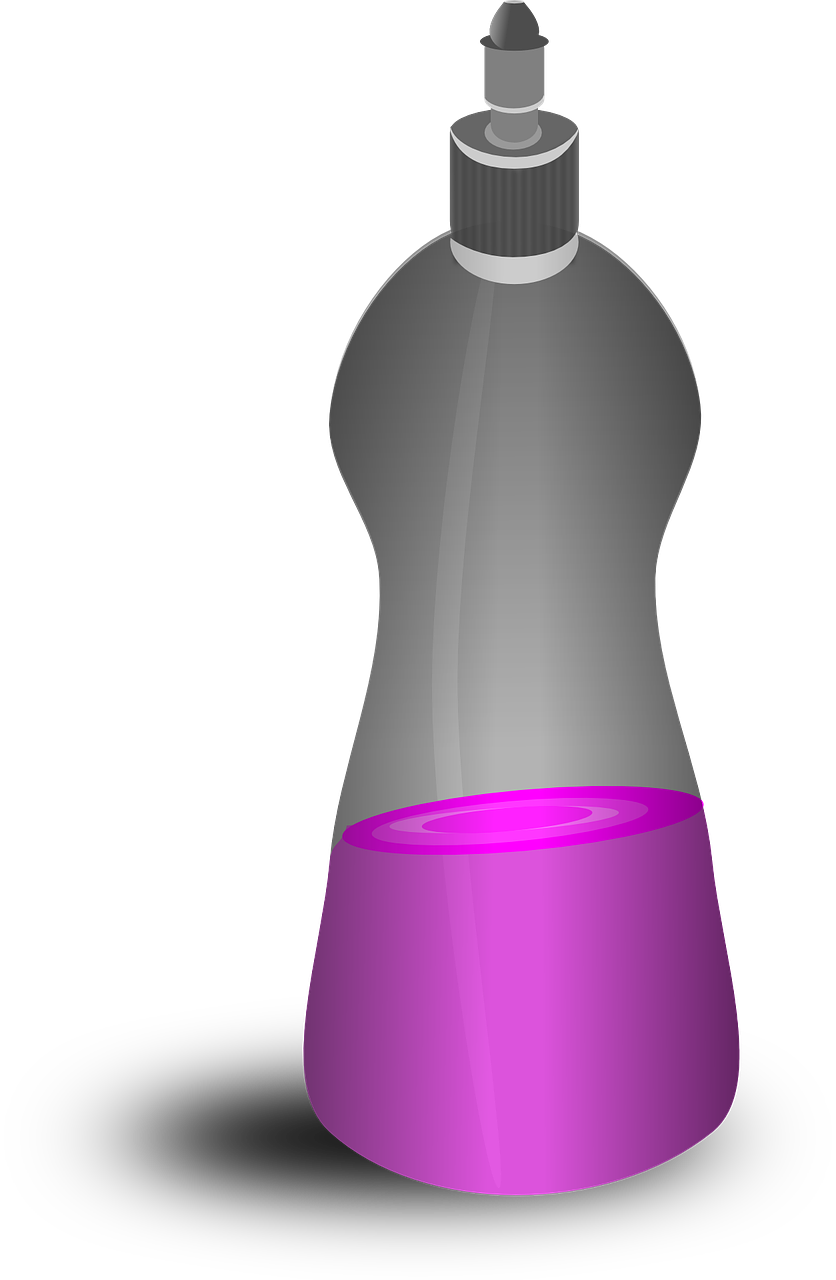Have you ever wondered if using a dishwasher is actually healthy for you? Let’s find out! In this article, we will explore the pros and cons of using a dishwasher and uncover whether it’s a safe and beneficial addition to your kitchen routine. So, put on your curious hat and let’s dive into the world of dishwashers!

Benefits of Using a Dishwasher
Saves Time and Effort
Using a dishwasher can significantly save you time and effort in your daily routine. Instead of spending hours washing dishes by hand, you can simply load them into the dishwasher and let it do the work for you. This gives you more time to relax or engage in other activities that you enjoy.
Saves Water and Energy
Contrary to popular belief, using a dishwasher can actually save water and energy. Modern dishwashers are designed to use water and energy efficiently, ensuring that you are not wasting resources. In fact, washing a full load of dishes in a dishwasher is more efficient than hand washing, which often involves continuously running water.
Effectively Kills Germs
One of the biggest advantages of using a dishwasher is that it effectively kills germs. The high temperatures and powerful detergents used in dishwashers help to eliminate harmful bacteria, viruses, and other microorganisms that may be present on your dishes. This ensures that your dishes are hygienically clean and safe to use.
Reduces Contact with Harsh Chemicals
Washing dishes by hand often requires the use of harsh chemicals, such as dishwashing soap or bleach, which can be irritating to the skin. However, when you use a dishwasher, you minimize the need for direct contact with these chemicals, reducing the risk of skin irritation or other allergic reactions. This is especially beneficial for individuals with sensitive skin.
Preserves the Quality of Utensils
Hand washing dishes can be abrasive, leading to the deterioration of utensils over time. The scrubbing and use of abrasive sponges can cause scratches and damage to the surfaces of your dishes and cutlery. However, when you use a dishwasher, the gentle water jets and detergents ensure that your utensils are cleaned without causing any damage, preserving their quality and longevity.
Concerns about Dishwasher Usage
Potential Exposure to Chemicals
While dishwashers can save you from direct contact with harsh chemicals, it is important to be mindful of the potential exposure to chemicals in dishwasher detergents. Some detergents may contain harmful substances that can pose risks to your health if ingested or inhaled. It is essential to carefully read and follow the instructions on the detergent packaging to ensure safe usage.
Impact on Plastic Utensils and Containers
Plastic utensils and containers can be susceptible to damage in a dishwasher due to the high temperatures and powerful jets of water. Prolonged exposure to these conditions can cause warping, melting, or other deformities in plastic items. It is advisable to hand wash plastic items or use dishwasher-safe plastics to avoid damage and potential hazards.
Risk of Bacterial Contamination
While dishwashers are effective at killing germs, there is still a small risk of bacterial contamination if the dishwasher is not properly maintained or if the dishes are not loaded correctly. It is important to regularly clean and maintain your dishwasher according to the manufacturer’s instructions to prevent the buildup of bacteria and ensure hygienic washing.
Potential Damage to Delicate Items
Delicate items such as fine china, crystal, or certain types of cookware may not be suitable for dishwashing. The high heat and powerful jets of water can cause these delicate items to chip, crack, or break. It is recommended to carefully read the manufacturer’s instructions for these items and, if necessary, hand wash them to avoid damage.
Effect on the Environment
Although dishwashers offer several benefits, it is important to consider their impact on the environment. Dishwashers consume energy and water, which can contribute to carbon emissions and water scarcity. While modern dishwashers are designed to be more efficient, it is still important to be conscious of your usage and take steps to reduce your environmental footprint.
Myths and Facts about Dishwashers
Myth: Dishwashers Waste More Water and Energy
Contrary to popular belief, dishwashers are actually more efficient than hand washing when it comes to water and energy usage. By washing a full load of dishes in a dishwasher, you are using less water compared to hand washing, which often involves continuous running water. Additionally, modern dishwashers are designed to use energy efficiently, making them a more sustainable choice.
Myth: Dishwashers Cannot Properly Clean Certain Items
Another common myth is that dishwashers cannot effectively clean certain items, such as heavily soiled pots and pans or delicate glassware. However, modern dishwashers are equipped with various washing cycles and settings that cater to different types of utensils. With the right dishwasher cycle and detergent, you can ensure that even the toughest stains are removed while still being gentle on delicate items.
Myth: Dishwashers Use Harsh Detergents
There is a misconception that dishwashers use harsh and toxic detergents that can be harmful to your health. However, dishwasher detergents are specifically formulated to be effective in removing food residues and stains while being safe for use on your utensils. It is important to choose a quality dishwasher detergent that is free from harmful chemicals and follow the recommended dosage for optimal results.
Fact: Dishwashers are Sanitary and Efficient
Contrary to concerns about hygiene, dishwashers are actually a sanitary option for cleaning your dishes. The high temperatures reached during the washing and drying cycles effectively kill bacteria, viruses, and other harmful microorganisms. Additionally, dishwashers are designed to be efficient, saving you time, water, and energy compared to hand washing.
Fact: Dishwashers are Designed for Various Utensils
Dishwashers are versatile appliances that are designed to accommodate a wide range of utensils. From plates and glasses to pots and pans, dishwashers have various racks, holders, and compartments to securely hold different items. By properly loading your dishwasher according to the manufacturer’s instructions, you can ensure that all your utensils are thoroughly cleaned without the risk of damage.
Tips for Ensuring Healthy Dishwasher Usage
Use Quality Dishwashing Detergent
Choosing a quality dishwasher detergent is crucial for both effective cleaning and ensuring your health and safety. Look for detergents that are free from harmful chemicals and have proven efficacy in removing food residues and stains. Follow the recommended dosage instructions to achieve optimal results without compromising your health or the environment.
Regularly Clean and Maintain the Dishwasher
To prevent the buildup of bacteria and ensure hygienic washing, it is important to regularly clean and maintain your dishwasher. This includes cleaning the filters, wiping down the interior, and checking for any clogs or blockages. Refer to the manufacturer’s instructions for specific guidance on how to clean and maintain your dishwasher properly.
Load Dishwasher Correctly
Properly loading your dishwasher is essential to ensure effective cleaning and minimize the risk of damage to your utensils. Place dishes and utensils in a way that allows water and detergent to reach all surfaces. Avoid overcrowding the dishwasher, as this can impede proper cleaning and drying. Take care to follow the manufacturer’s instructions for loading different types of utensils to avoid any mishaps.
Pre-Rinse vs. No Pre-Rinse Debate
There is a longstanding debate about whether pre-rinsing dishes before loading them into the dishwasher is necessary. While some argue that pre-rinsing helps to remove stubborn food residues and improve dishwasher performance, others believe that it is unnecessary and wasteful. Ultimately, the choice is yours. However, you can save water and energy by scraping off excess food particles before loading the dishes instead of pre-rinsing.
Using the Right Dishwasher Cycle
Different dishwasher cycles are designed to cater to various levels of soiling and types of utensils. It is important to select the appropriate cycle for your load to ensure optimal cleaning and avoid unnecessary water and energy consumption. For heavily soiled items, use a more intense cycle, while delicate items may require a gentler cycle. Refer to the dishwasher’s user manual for guidance on selecting the right cycle for specific items.

Common Dishwasher Health Concerns
Potential Harmful Chemicals in Detergents
While dishwasher detergents are generally safe to use, it is important to be aware of potential harmful chemicals that may be present in some detergents. Ingredients like phosphates, chlorine, and fragrances can be irritating or harmful if ingested or inhaled. Read the labels carefully and choose detergents that are free from these chemicals or opt for eco-friendly and natural alternatives.
Mold and Bacterial Growth
Dishwashers can sometimes become breeding grounds for mold and bacteria if not properly cleaned and maintained. The damp and warm environment inside the dishwasher provides an ideal setting for microbial growth. To prevent this, regularly clean and maintain your dishwasher, paying special attention to the filters, seals, and gaskets. Additionally, leave the dishwasher door slightly ajar after each use to allow for proper ventilation and drying.
Health Risks from Contaminated Utensils
If your dishwasher is not properly maintained or if dishes are not loaded correctly, there is a small risk of bacterial contamination on your utensils. It is important to ensure that your dishwasher is cleaned regularly and that dishes are loaded in a way that allows for thorough cleaning and drying. Additionally, practice good food hygiene by properly rinsing your dishes before loading them into the dishwasher.
Allergic Reactions to Dishwasher Detergents
Some individuals may experience allergic reactions or sensitivities to certain ingredients in dishwasher detergents. This can manifest as skin irritation, rashes, or respiratory issues. If you have known allergies or sensitivities, it is advisable to choose detergents that are free from common allergens and consult with a healthcare professional if you experience any symptoms.
Burns or Electric Shocks
As with any electrical appliance, there is a potential risk of burns or electric shocks if proper safety precautions are not followed. Be cautious when handling hot dishes or items from the dishwasher and use oven mitts or gloves as necessary. Regularly check the electrical connections and cords of your dishwasher for any signs of damage or wear and have them repaired or replaced promptly.
The Impact of Dishwasher Usage on the Environment
Energy Consumption
Dishwashers can contribute to energy consumption in households. The heating element, pump, and other components require electricity to operate. While modern dishwashers are designed to be energy-efficient, it is still important to consider their energy consumption and choose energy-saving settings when possible. Additionally, running the dishwasher with a full load is more efficient than running it with only a few items.
Water Consumption
Water consumption is another environmental factor to consider when using a dishwasher. While dishwashers use less water compared to hand washing, they still require a certain amount of water to function. To minimize water consumption, wait until your dishwasher is fully loaded before running it. Additionally, consider using eco or water-saving modes if available.
Carbon Footprint
Dishwasher usage contributes to carbon emissions, mainly through the electricity consumed during its operation. The generation of electricity often involves the burning of fossil fuels, which release greenhouse gases. By incorporating energy-saving habits, such as using the dishwasher only when necessary and choosing energy-efficient settings, you can reduce your carbon footprint.
Chemical Pollution
The use of dishwasher detergents can contribute to chemical pollution if not properly managed. Certain ingredients in detergents, such as phosphates and chlorine, can be harmful to aquatic life and ecosystems when they enter the wastewater system. To minimize chemical pollution, choose detergents that are free from harmful chemicals and consider using eco-friendly or biodegradable options.
Waste Generation
The packaging of dishwasher detergents and rinse aids, as well as their empty containers, can contribute to waste generation. To reduce waste, opt for products with minimal packaging, choose refillable options when possible, and properly recycle empty containers. Additionally, consider using bulk or concentrated detergents to reduce the overall amount of waste generated.

Research on Dishwasher Usage
Research Findings on Health Effects
Research on dishwasher usage and its health effects has shown that dishwashers are generally safe and do not pose significant health risks when used properly. Studies have demonstrated that dishwashers effectively kill bacteria and other harmful microorganisms, ensuring hygienic dishwashing. However, it is essential to choose quality detergents that are free from harmful chemicals and follow proper maintenance and usage practices.
Scientific Studies on Environmental Impact
Scientific studies have examined the environmental impact of dishwasher usage, particularly in terms of energy and water consumption. These studies consistently show that dishwashers are more water and energy-efficient compared to hand washing, especially when a full load is washed. However, the overall impact on the environment depends on individual usage habits and appliance efficiency.
Comparison of Different Dishwashing Methods
Various studies have compared different dishwashing methods, including dishwashers, hand washing, and hybrid methods. These studies consistently show that dishwashers are the most efficient and effective method in terms of time, water usage, and hygiene. Additionally, they highlight the importance of proper hand washing techniques when opting for hand washing to ensure satisfactory cleaning results.
Evaluation of Dishwasher Detergents
Researchers have evaluated the efficacy and safety of dishwasher detergents. They assess the ability of detergents to remove food residues, stains, and germs from dishes while considering potential health risks. These evaluations help ensure that consumers have access to safe and effective detergents that meet regulatory standards and maintain high cleaning standards.
Assessment of Dishwasher Steam Sterilization
Steam sterilization is a feature found in some dishwashers that uses high temperatures to kill germs and bacteria more effectively. Research has assessed the effectiveness of steam sterilization in dishwashers in eliminating microbial contaminants. These studies validate the use of steam sterilization as an additional measure to ensure hygienic dishwashing.
Healthy Alternatives to Dishwasher Usage
Hand Wash with Hot Water and Soap
For those who prefer not to use a dishwasher or do not have one available, hand washing with hot water and soap is a healthy alternative. It is important to use hot water (at least 120°F/49°C) to effectively kill germs and ensure thorough cleaning. Proper hand washing techniques, including scrubbing all surfaces of the utensils, should be followed to minimize the risk of contamination.
Air Drying vs. Dish Towels
When hand washing dishes, it is recommended to air dry them instead of using dish towels. Dish towels may harbor bacteria if not properly cleaned or changed regularly. Air drying allows dishes to naturally dry without the risk of cross-contamination from potentially dirty towels. If dish towels are used, ensure they are regularly washed in hot water and thoroughly dried.
Natural Dishwashing Solutions
For individuals seeking more natural alternatives, there are various homemade or environmentally-friendly dishwashing solutions available. These solutions often utilize ingredients such as vinegar, baking soda, or lemon juice, which have cleaning properties. However, it is important to note that these alternatives may not be as effective in killing germs compared to commercial dishwasher detergents.
Using Baking Soda and Vinegar for Cleaning
Baking soda and vinegar can be used together as a natural cleaning solution for dishes. Baking soda acts as a mild abrasive, removing food residues and stains, while vinegar helps to eliminate odors and break down grease. Mix these ingredients to form a paste and gently scrub your dishes before rinsing thoroughly.
Using Dishwashing Gloves for Protection
If you choose to hand wash dishes, using dishwashing gloves can provide additional protection for your hands and skin. Gloves create a physical barrier between your skin and potentially harsh chemicals present in dishwashing soap. They also help to prevent excessive contact with hot water, minimizing the risk of burns or scalds.
Conclusion
Using a dishwasher can offer numerous benefits in terms of time-saving, water and energy efficiency, and hygienic dishwashing. Contrary to popular myths, dishwashers are designed to be efficient and effective in cleaning a wide range of utensils. However, it is important to be mindful of potential health concerns, such as exposure to chemicals and the proper maintenance of the dishwasher. By following healthy dishwasher usage tips and considering alternatives when necessary, you can maintain cleanliness, hygiene, and environmental sustainability in your daily dishwashing routine.

